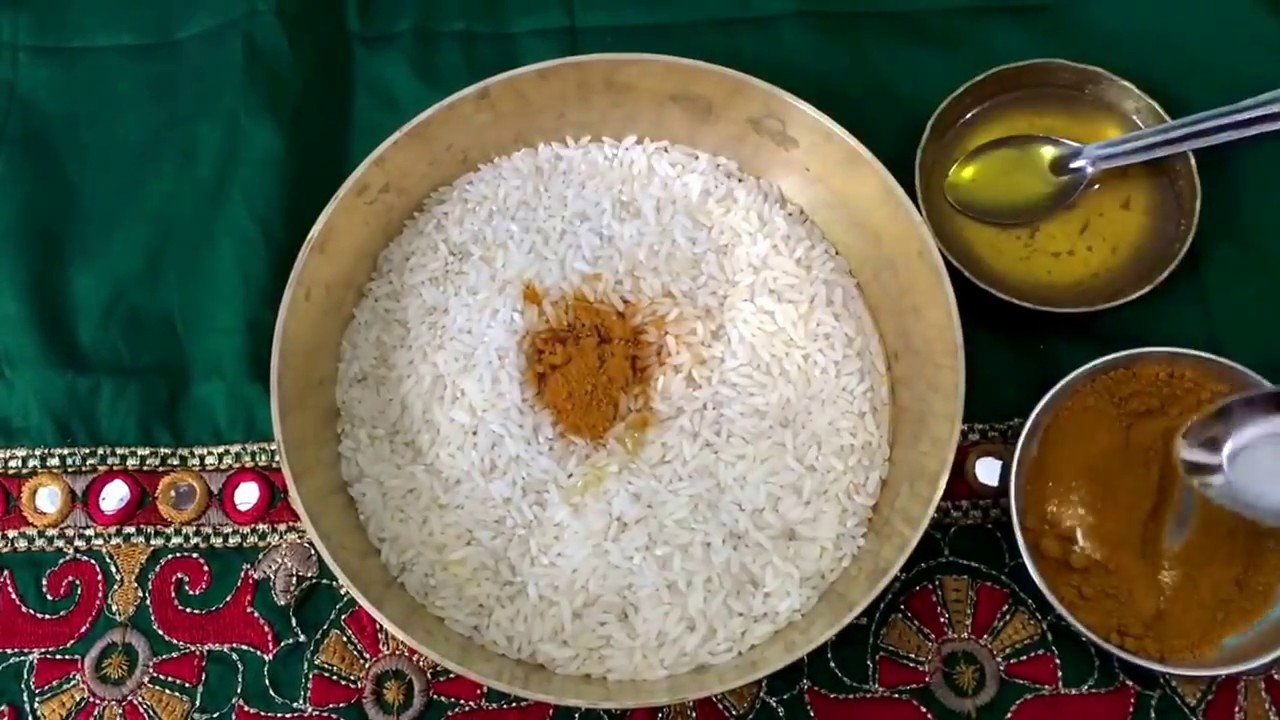
Did You Know ? Akshata or Unbroken Rice Brings Prosperity
Apart from being a major staple food worldwide, rice is also an important and valuable ingredient in various ceremonies and religious rituals, and holds great significance. It is believed widely that rice especially unbroken rice or Akshata may bring prosperity, fertility, bounty and is often treasured like clothing, jewellery or money.
From harvest festivals to Indian weddings to Pujas such as, Durga Puja, Shivratri, Diwali or Kali Puja, Ganesh Chaturthi and many others, rice is widely used to prepare ‘bhog’ or offered to gods and goddesses by the devotees. While West Bengal and Assam worships Goddess Kali in the Hindu month of ‘Karthik’ on a new-moon or ‘Amavasya’, which is the day before the rest of the India engages in the widespread celebration of Diwali, worshipping goddess Laxmi.
Goddess Kali is worshipped in different local pandals in Kolkata, Guwahati and Bhubaneshwar, and in many Hindu crematoriums as it is believed that she dwells in crematorium grounds. During the Puja, goddess Kali is offered rice, meat, fish, fruits, sweets, and sometimes even alcohol.
Other parts of India, celebrate the ‘festival of Lights - Diwali’, celebrating Lord Ram’s return to his home land with wife Sita after defeating Ravana or more importantly the ‘victory of light over darkness, good over evil and knowledge over ignorance’, while the deity Laxmi is worshipped by her devotees for prosperity and wealth.
Laxmi Puja held during Diwali, is performed following full rituals as instructed in our holy books. Idols of both Goddess Laxmi and Lord Ganesha are adorned with silk clothes and gold and 9 slots of Akshata or unbroken rice is prepared for installing the Navgraha Gods along with another 16 slots of wheat and wheat flour on red cloth for the main puja.
Both of the religious rituals see a wide usage of rice. Akshata is offered in many religious festivals and ceremonies. Akshata is believed to have the power of attracting five of the prime Hindu deities. When offered to the deities, their energies are believed to get transferred in the rice (Akshata), making Akshata a very significant part of all Hindu puja rituals.
"
From harvest festivals to Indian weddings to Pujas such as, Durga Puja, Shivratri, Diwali or Kali Puja, Ganesh Chaturthi and many others, rice is widely used to prepare ‘bhog’ or offered to gods and goddesses by the devotees. While West Bengal and Assam worships Goddess Kali in the Hindu month of ‘Karthik’ on a new-moon or ‘Amavasya’, which is the day before the rest of the India engages in the widespread celebration of Diwali, worshipping goddess Laxmi.
Goddess Kali is worshipped in different local pandals in Kolkata, Guwahati and Bhubaneshwar, and in many Hindu crematoriums as it is believed that she dwells in crematorium grounds. During the Puja, goddess Kali is offered rice, meat, fish, fruits, sweets, and sometimes even alcohol.
Other parts of India, celebrate the ‘festival of Lights - Diwali’, celebrating Lord Ram’s return to his home land with wife Sita after defeating Ravana or more importantly the ‘victory of light over darkness, good over evil and knowledge over ignorance’, while the deity Laxmi is worshipped by her devotees for prosperity and wealth.
Laxmi Puja held during Diwali, is performed following full rituals as instructed in our holy books. Idols of both Goddess Laxmi and Lord Ganesha are adorned with silk clothes and gold and 9 slots of Akshata or unbroken rice is prepared for installing the Navgraha Gods along with another 16 slots of wheat and wheat flour on red cloth for the main puja.
Both of the religious rituals see a wide usage of rice. Akshata is offered in many religious festivals and ceremonies. Akshata is believed to have the power of attracting five of the prime Hindu deities. When offered to the deities, their energies are believed to get transferred in the rice (Akshata), making Akshata a very significant part of all Hindu puja rituals.
"
